Met vier families in Engeland
In de dagen voor de collectiedag aan het Red Star Line-museum (november 2015) ontdekten Marthe Hens en Karel Vangenechten een vierde familietak die in Engeland had verbleven tijdens de Eerste Wereldoorlog. Ondanks vele mogelijke verhalen en invalshoeken, blijft echter de familiegeschiedenis vol onbeantwoorde vragen.
Sources for research
Belgian refugees in the UK during the First World War
Sources for research
Table of Contents
General information: Getting Started
There doesn’t seem to be very much…
There does seem to be something...
UK, England, Wales, Scotland and Ireland
General information: Getting Started
There doesn’t seem to be very much…
It is fairly common in both Belgium and the UK for families to be actively looking for repositories, databases and researchers to help them in their search for more information on histories that relate directly to the Belgian refugees in the UK. There is, however, no single centralised digital database containing all the necessary data and records. Gathering all the records into one place would, in fact, be a financial utopia and a logisitical impossibility. The Belgian community in Britain can, after all, be equated in size to cities like Ghent, Exeter or York.
Finding relevant information is, therefore, often like looking for a needle in a haystack: very time consuming and potentially demoralising. The search itself can actually be inspiring and may take you to places you might never have anticipated. It might also necessitate a visit to the other side of the Channel and can be very enriching, despite the fact that you may not manage to dig up much relevant information. The search itself will lead you through various archives, libraries and institutions and you will meet, virtually or in real life, not only the people who work there, but also fellow researchers who are often willing to share their stories and expertise.
There does seem to be something...
An added difficulty is that archive material relating to the Belgians in Britain during the First World War is often spread across different institutions in both countries. Some archives have even ended up in the US, as in the case of the Hoover Archives. Neither is the material well organised, an example being a third set of registration cards only discovered in November 2012, tens of thousands of them, in the State Archives in Brussels. Some information has even been destroyed, ship lists of wounded soldiers, for instance.
Some archive material was deliberately discarded after the end of the war. Numerous local Belgian Refugee Committees in the UK sent their material to the Imperial War Museum, but many more did not.
All this makes retrieving information relevant to Belgian refugee research a difficult task.
UK, England, Wales, Scotland and Ireland
Most Belgians, who crossed the Channel, arrived in England. About one in three stayed in London or its environs. The number of refugees in Wales, Scotland and Ireland together was never more than ten percent of the total Belgian community in exile in the British Isles. The United Kingdom also underwent major changes during the First World War, not least because of the civil war that broke out in Ireland in 1916, which would lead to the subsequent separation between the Republic of Ireland and Northern Ireland. This made Ireland a less likely destination for Belgians. Also, as the Isle of Man increasingly became a destination for German prisoners of war, the Belgians living there had largely returned to England by the end of 1915. Although research into the Belgian refugees typically focuses on England, noted family histories emerge from Wales and Scotland too. Along with the War Refugees Committee, it was the Local Government Board in England that was responsible for the care of the Belgians. As the same body also applied to Wales, this list of resources focuses on both England and Wales.
Search by surname
There are currently two sets of registration cards and personal information data sets accessible to the public:
· One at the National Archives in London, in Kew, in the series MH 8, but also in MUN. This includes approximately 65,000 index cards of approximately 165,000 Belgians, ordered alphabetically. These cards can hold key information such as date of arrival and date of departure, composition of a family with all the names and ages, occupations and the support they claimed (when and how much).
o Occasionally these cards also include the names of people with an entirely different surname (relatives, spouses, servants, friends) and, for instance, if the Peeters family brought their servant Vermeiren with them, then you will need to look for him under Peeters.
· The Central Register of Belgian refugees, which can be consulted in the National Archives in Brussels, is still the most comprehensive set of data.
The Belgian exile press in Britain also included many names of Belgian refugees. At the Royal Library of Belgium in Brussels, you can access L'Independance Belge, the main Belgian exile newspaper for French-speaking Belgians, which is also available online. Recently, the project 'Nieuws van de Groote Oorlog' published over 270,000 pages of wartime newspapers online, including 'De Stem Uit België', the main Belgian exile newspaper for Dutch-speaking Belgians. Gazet van Antwerpen offers its archive online, which is very interesting not only for the first news of refugees in England, but also for information on the return of the 'British Belgians'. Amsab-ISG provides the digital editions of the newspaper Vooruit until 1918.
With regards to passenger lists, you can try and retrieve information via Ancestry.com. However, these are mostly passenger lists to the UK from Africa or South America, or from the UK to the United States or Canada. If any of the members of the family that you are researching made such a journey, then this might be an invaluable source, otherwise it most likely will not. Access to Ancestry is often free in libraries.
Digging further
For a modest contribution, the online archive of British local newspapers can be accessed via the British Library Newspaper Archive. The search term 'Belgian refugees' pre-war years, now gives you more than 23,000 results (date mid-October 2015). And the online collection is growing every day! You can search and read the results, but to proceed with those results, you need to pay. At the time of writing, a one month subscription costs £12.95 and it is £79.95 for a year.
Very often these local newspapers mention the names of refugees, especially if they are accompanied by the date of arrival, a birth, a marriage or a death. For the last three, you can also go online at FreeBMD, where you can obtain information about status at birth, marriage and death. Equipped with this information, the next step is the Public Record Office where you can find a copy of the original document. All the information is available from FreeBMD.
Arguably the most diverse archive for research on Belgian refugees in England during First World War can be found in the Imperial War Museum.[1] Section BEL of the Women Work Collection is very extensive. The numerous files do not contain many names of Belgians, however. A search by surname won't return much, if anything. The WWC BEL is, however, really useful for local historians and authors who would like to recreate a bigger picture of the history of the Belgians in Britain.
Social media
Announcements about, and research work on, Belgian refugees, their activities, their whereabouts and their descendants are very much alive on social media, especially Twitter. There have already been cases when someone has been looking for descendants of a foster family in England or, vice versa, for descendants of the Belgians who were hosted by their family in the UK 100 years ago, with relatives of these refugees being found through Twitter. Adding @ or # to a specific location will help the story to be picked up locally (like #yateley), as well as addressing a relevant society such as the Flemish genealogical society @familiekunde.
Primary sources
Official reports
Many official reports are available through Parliamentary Papers, but you need a login to access them, which is easy when you're attached to a British institution of Higher Education or library. Keep in mind that, if you are doing research in England, libraries and archives typically have access to sources like Parliamentary Papers.
Both the Kenniscentrum (Knowledge Centre) of In Flanders Fields Museum and the Rijksarchief (National Archives) in Brussels house a number of official reports, such as those of the Local Government Board. Both institutions have many more primary sources, such as the archives of the main Belgian body in England, the Official Committee for England.
The report, which forms the best basis for any wider understanding of the entire history of the Belgians in Britain during the First World War, is the 1920 report published by the Ministry of Health: the Report on the Work Under Taken by the British Government in the Reception and Care of the Belgian Refugees is available online.
Archives
Archives in Belgium
· Aartsbisschoppelijk Archief, Mechelen
· Amsab-ISG, Ghent
· Archief en Documentatiecentrum voor het Vlaams-nationalisme, Antwerpen
· Royal Palace Archives, Brussels
· CEGES / SOMA, Brussels
· Conscience Library, Antwerp
· Newspaper Museum Aartselaar
· In Flanders Fields Museum, Ypres
· KADOC, Catholic Documentation and Research Centre, Leuven
· Royal Military Museum Brussels
· Royal Library / Bibliothèque Royale, Brussels
· Letterenhuis AMVC, Antwerp
· Liberal Archives, Ghent
· Province of Antwerp Archives
· Belgian National Archives, Brussels
· Antwerp City Archives
· City Archive of Mechelen
· Archbishop Archive, Mechelen
· Archives of the Norbertine Abbey, Tongerlo
· Stedelijk Museum Aarschot
· Flemish Provincial Archives of the Jesuits, Leuven
· Archives of the Ursulines, Sint-Katelijne Waver
Archives in the UK
The UK has a long archival tradition, which makes British archives numerous. Each one has some material on Belgian refugees, albeit often very limited. If you intend to take a local research trip, it is best to take into consideration the following:
· The local newspaper (s) of the war years. Not all these local newspapers have been digitised just yet or made available through the British Library Newspaper Archive (see above), but in these contemporary newspapers, the names of Belgians are very often mentioned.
· The local archives where many official documents from that period are kept, and often more than that (pictures ...). If you have located a local archive, ask them straightaway whether or not they also hold the local police archives from that period. If they do not, they should tell you where these are. If you are unable to find a specific local archive immediately, contact your nearest local library.
· The local history society is usually very helpful too. Local parish archives often do not hold much more than data on births, marriages and deaths, but it is sometimes the case that Belgians produced woodwork or statues for a particular local church, in which case their names will have been recorded.
Because the UK is so much bigger than Belgium, especially from north to south, the archives given below are listed by region. A survey of archives can also be found through the National Archives and the British government website. The focus here lies mainly with England and Wales, because the Belgians were looked after by the same Local Government Board (LGB). You can find the Annual LGB reports here and there is a free trial.
Mind you, although the list below might seem extensive, it is far from complete.
London
· British Library
· Women's Library, attached to the London School of Economics
· London Metropolitan Archives
· Each London borough (there are 32) holds its own, often limited collection on Belgian refugees. Local newspapers and archives are consulted at Redbridge Heritage Centre , Chelsea Library, Hounslow History and Archives and Alexandra Palace (Haringey) are but a few recommendations. Also interesting – not least because of the visit – are the archives housed at Eton College, but you need to arrange an appointment beforehand. Access to some of the files might be restricted.
Southeast
In the southeast of England, a rather arbitrarily demarcated region, a lot of information on Belgians is held in the archives of the county of Kent. These are located in Folkestone, where you can retrieve a substantial amount of information, as well as in nearby Eastbourne. Other towns with local archives containing material on the Belgians include Brighton, Canterbury, Guildford, Portsmouth, Reading, Southampton, Tonbridge and Tunbridge, Waverley and Winchester. Oxford not only has its city archives, but the Bodleian Library too. Readership there requires considerable preparation beforehand. Some others include:
· Kent History & Library Centre
South West
· Wiltshire & Swindon Archives
West Midlands
· Worcestershire Record Office
North West
· Cheshire and Chester Archives
· Labour History Archives, Manchester
North East
· Beamish Museum, County Durham, UK
Yorkshire and the Humber
West Yorkshire Archive Service
East Midlands
East of England
Cambridgeshire County Council Archives
Wales
Wales has digitised newspapers from the period of the First World War, which can be accessed via Cymru 1914.
Scotland, Ireland
Scotland and Ireland will be included in a subsequent update.
Books (selection)
Cammaerts, E. & Davignon, H. (Eds.). (1916). A Book of Belgium’s Gratitude. London: John Lane/The Bodley Head. Retrieved from http://archive.org/details/abookbelgiumsgr00lambgoog.
Campbell, H. (1917). Belgian Soldiers at Home in the United Kingdom. London: Saunders and Cullingham.
Carlisle, J.C. (1916). Folkestone During the War: a record of the town’s life and work. Folkestone: F.J. Parsons Ltd. Retrieved from http://archive.org/details/folkestoneduring00carliala.
Comité Officiel Belge pour l'Angleterre. (1917). Rapport adressé à Monsieur le ministre de l'Intérieur le 31 août 1917. Brussels/London: Dumoulin.
Committee on Alleged German Outrages. (1915). Report of the Committee on Alleged German Outrages Appointed by His Britannic Majesty’s Government. London: His Majesty’s Stationery Office. Retrieved from http://www.firstworldwar.com/source/brycereport.htm.
Davignon, H. (1916). Un Peuple en Exil: La Belgique en Angleterre. Paris: Bloud & Gay.
de Jastrzebski, T.T.S. (1916). The Register of Belgian Refugees. Journal of the Royal Statistical Society, 79(2), 133-158. Retrieved from http://www.jstor.org/stable/2340812.
District War Refugees Committee for Belgians Sheffield. Report 1914-1919. (1919). Sheffield.
First Report of the Departemental Committee appointed by the president of the Local Government Board to consider and report on questions arising in connection with the reception and employment of the Belgian refugees in this country. (1914). London.
First World War Hugel Homes for Belgian Refugees, Cambridge, 1914-1919. (1920). Cambridge: Committee of the Hugel Homes.
Gibson, H. (1917). A Diplomatic Diary. London: Hodder and Stoughton. Retrieved from http://archive.org/details/diplomaticdiaryb00gibsiala.
Government Belgian Refugee Committee. (1914). Minutes of Evidence Taken Before the Departmental Committee on Appointed by the President of the Local Government Board to Consider and Report on Questions Arising in Connection With the Reception and Employment of Belgian Refugees in this Country. London: His Majesty’s Stationery Office.
Government Belgian Refugee Committee. (1915). First Report of the Departmental Committee on Questions Arising in Connection With the Reception and Employment of Belgian Refugees in this Country. London: His Majesty’s Stationery Office.
Hatch, E. (1916). Belgians Refugees in the United Kingdom. The Quarterly Review, 446, 188-214.
Hunt, E.E. (1916). War Bread: A Personal Narrative of the War and Relief in Belgium. New York: Henry Holt. Retrieved from http://archive.org/details/warbreadaperson00huntgoog.
Jaspaers, G. (1917). De Belgen in Holland 1914-1917. Amsterdam: Van Kampen.
List of Commissions and Committees set up to deal with public questions arising out of the War. (1915). London: His Majesty’s Stationery Office.
List of Commissions and Committees set up to deal with public questions arising out of the War. (1917). London: His Majesty’s Stationery Office.
Local Government Board. (1915). Forty-fourth Annual Report of the Local Government Board. London: His Majesty’s Stationery Office.
Local Government Board. (1915). Report on the Special Work of the Local Government Board Arising out of the War (Up to the 31st December, 1914). London: His Majesty’s Stationery Office.
Local Government Board. (1916). Forty-fifth Annual Report of the Local Government Board. London: His Majesty’s Stationery Office.
Local Government Board. (1917). Forty-sixth Annual Report of the Local Government Board. London: His Majesty’s Stationery Office.
Local Government Board. (1918). Forty-seventh Annual Report of the Local Government Board. London: His Majesty’s Stationery Office.
Local Government Board. (1919). Forty-nineth Annual Report of the Local Government Board. London: His Majesty’s Stationery Office.
Loodts, P. (2015). Médecins de la Grande Guerre: Un village belge sur la Tamise. Retrieved May 7, 2015, from http://www.1914-1918.be/insolite_village_tamise.php.
Lugard, L. (1915). The Work of the War Refugees Committee. London: G. Bells and Sons.
Ministry of Health. (1920). Report on the Work Undertaken by the British Government in the Reception and Care of the Belgian Refugees. London: His Majesty’s Stationery Office.
Reception of the Belgian Refugees by Liverpool. (1915). Liverpool.
Rency, G. (1920). Les réfugiés belges chez les alliés et chez les neutres. In Rency, G., La Belgique et la guerre I: La vie matérielle de la Belgique durant la guerre mondiale (pp. 328-343). Brussels: Henri Bertels.
Report of the Newport Belgian Refugees Committee. (1915). N.p.
Report of the War Refugees Committee August, 1916. (1916). London.
Souvenir of the farewell gathering of the Belgian Refugees who have been befriended by the Belgian Protestant Relief Committee 1914 to 1918. (1919). London.
The condition of the Belgian Workmen now refugees in England. (1917). London.
The Times. (1915). The Times History of the War, 1914, Vol. IV. London: The Times.
The War Refugees Committee Second Report December, 1917. (1917). London.
The War Refugees Committee Third and Final Report May, 1919. (1919). London.
van Outryve d'Ydewalle, C. (1920). Les réfugiés belges à Folkestone 1914-1918: Ce que l'Angleterre a fait pour eux. Bruges.
Varlez, A. (1917). Les Belges en Exil. Brussels/London: Librairie Moderne.
Varlez, A. (1917). Les Belges en Exil. London.
Verslag van de Vereeniging Nederlandsch Comité tot steun aan Belgische en andere slachtoffers. (1916). Amsterdam.
Verslag van de werkzaamheden der Centrale Commissie tot Behartiging van de belangen der naar Nederland uitgeweken vluchtelingen. (n.d.). ’s-Gravenhage.
Wallon, J. (1918). Une cité belge sur la Tamise. London/Brussels.
Working Mens Belgian Fund London: Final Report. (1920). London.
Secondary sources
Amara, M. & Tallier, J.-P. (2014). Principales sources d'archives relatives à la Premiere Guerre mondiale disponibles en Belgique. Brussel: Rijksarchief. Retrieved from http://www.crid1418.org/espace_scientifique/guidesources/archives_belges.pdf.
Amara, M. (2008). Des Belges à l'épreuve de l'exil. Les réfugiés de la Première Guerre mondiale en France, en Angleterre et aux Pays-Bas. Brussels: Presse Universitaire de Bruxelles.
Barres-Baker, M. (2007). Belgian Refugees During the First World War. Wembley: Brent Archives. Retrieved from http://www.brent.gov.uk/heritage.nsf/24878f4b00d4f0f68025663c006c7944/462432bad3765fd5802573240039ef89/$FILE/Belgian_refugees_bibliography.pdf.
Bernardo Y Garcia, L.A. (1999). De Belgische Vluchtelingen in Groot-Brittannië tijdens de Tweede Wereldoorlog. In Morelli, A. (Ed.). Belgische emigranten. Oorlogsvluchtelingen, economische emigranten en politieke vluchtelingen uit onze streken van de 16de eeuw tot vandaag (pp. 43-57). Berchem: EPO.
Bossenbroek, M. (1988). Vluchten voor de Groote Oorlog 1914-1918. Amsterdam: De Bataafsche Leeuw.
Bossenbroek, M. et al. (1988). Vluchten voor de groote oorlog. Belgen in Nederland, 1914-1918. Amsterdam: De Bataafsche Leeuw.
Brosens, G. (2013). Congo aan den Yser. Antwerp: Manteau.
Bygate, J. (2006). Of Arms and the Heroes: The Story of the ‘Birtley Belgians’. Durham: The History of Education Project.
Cahalan, P. (1977). The Treatment of Belgian Refugees in England During the Great War (Doctoral dissertation). Available from MacSphere Open Access Dissertations and Theses. (http://hdl.handle.net/11375/15514)
Cahalan, P. (1982). Belgian Refugee Relief in England During the Great War. New York: Garland Publishing.
Comité officiel belge pour l'Angleterre. (n.d.). Aux réfugiés belges! Conseils et renseignements.
de Bruijn, T. (1986). Een vluchtelingenprobleem aan het begin van deze eeuw. Kwartaal en Teken, 12(4).
De Leender, C., E.A. (2014). Oorlogsjaren van een dertienjarig meisje en andere vluchtelingverhalen.
Aarschot: Poëzie Aarschot.
de Roodt, E. (2000). Oorlogsgasten. Zaltbommel: Europese Bibliotheek.
De Schaepdrijver, S. (1997). De Groote Oorlog. Het koninkrijk België tijdens de Eerste Wereldoorlog. Amsterdam/Antwerpen: Atlas.
de Vries, W. (1980). Nederland als non-belligerente natie en de internering van buitenlandse militairen gedurende de Eerste Wereldoorlog. In: Mededelingen Sectie Militaire Geschiedenis (Vol. 3, pp. 76-136). 's-Gravenhage.
Debaeke, S. (2004). Vluchten voor de Grote Oorlog. Koksijde: Klaproos.
Declercq, P. (2007). IBIS 1906-2006. Een koninklijk verhaal. Bredene.
Doeleman, H. (1996). Interneringsdepot Gaasterland – Belgische vluchtelingen 14/18. Oudemirdum: Mar en Klif.
Elliot, R. (2006). An Early Experiment in National Identity Cards: The Battle over Registration in the First World War. 20 Century British History. 17(2), 145-176. Retrieved from http://www.ncbi.nlm.nih.gov/pmc/articles/PMC2574002/.
Fisher, H.A.L. (1927). James Bryce: Viscount Bryce of Dechmont. London/New York: The Macmillan Company.
Fowler, S. & Gregson, K. (2005, May). Bloody Belgians. Ancestors, 33, 43-49. Retrieved from http://issuu.com/penandsword/docs/bloodybelgians.
Fowler, S. (2005). Belgian Refugees in Britain during the First World War. In Blatchford, R. & Blatchford, E. (Eds.). The Family and Local History Handbook 9 (317-320). York: Robert Blatchford Publishing.
Heron, P. (2010). Guests of the Nation: The Story of Ilford’s Belgian Refugees 1914-1919. Leeds: Purple White and Green.
Horne, J. & Kramer, A. (2001). German Atrocities 1914: A History of Denial. New Haven: Yale University Press.
Jespers, M. (2003), Meesteremy : verzameld werk met levensverhaal Jan Remy Alloing 1883-1953.
Kershaw, R. & Pearsall, M. (2004). Immigrant and Aliens: A Guide to Sources on UK Immigration and Citizenship. Kew: National Archives.
Een koffer vol verhalen, Oostende, Willemsfonds, 2008.
Kushner, T. & Knox, K. (1999). Refugees in the Age of Genocide. Global, National and Local Perspectives During the Twentieth Century. London: Frank Cass.
Kushner, T. (1999). Belgian refugees in Britain during the First World War. Immigrants and Minorities, 18(1).
Lawrence, B. (2009). Birtley Belgians – Memorial Records. A Working Paper. Retrieved from http://www.stjosephs-birtley.co.uk/BelgianSoldiers.htm.
Libotte, Bram. Unpublished manuscript about the Congolese soldiers during WO I.
Myers, K. (2001). The Hidden History of Refugee Schooling in Britain: The Case of the Belgians, 1914-1918. History of Education, 30(2), 153-162.
Het Oostendse oorlogsdagboek van Charles Castelein 1914-1918. (1998). In Vandenabeele, J. (Ed.). Oostendse historische publicaties 3, Oostende: Stadsarchief.
Ouditt, S. (1994). Fighting Forces, Writing Women: Identity and Ideology in the First World War. London/New York: Routledge.
Panayi, P. (1993). Refugees in Twentieth-Century Britain: A Brief History. In Robinson, V. (Ed.). The International Refugee Crisis: British and Canadian Responses (pp. 95-112). Basingstoke: Macmillan in association with the Refugee Studies Programme, University of Oxford.
Pirenne, H. (1928). La Belgique et la guerre mondiale (pp. 275-282), Paris/New Haven.
Pirenne, H. (1928). La Belgique et la Guerre Mondiale. New Haven/Paris: Yale University Press/Presses Universitaires de France.
Purseigle, P. (2004). Beyond and Below the Nations: Towards a Comparative History of Local Communities at War. In MacLeod, J. & Purseigle, P. (Eds.). Uncovered Fields: Perspectives in First World War Studies (pp. 95-124). Leiden: Brill.
Purseigle, P. (2007). ‘A Wave on to Our Shores’: The Exile and Resettlement of Refugees from the Western Front, 1914-1918. Contemporary European History, 16, 427-444. Retrieved from http://www.eui.eu/Documents/MWP/ProgramActivities/Purseigle.pdf.
Purseigle, P. (2007). The Reception of Belgian Refugees in Europe: A Litmus Test of Wartime Social Mobilisation. In Crawford, J., McGibbon, I. (Eds.). New Zealand’s Great War: New Zealand, the Allies, and the First World War. Auckland: Exisle Publishing.
Reijngoudt, A. (2004). Gehalveerde mensen. Het Belgenkamp in Harderwijk 1914-1918. Barneveld: Koninklijke BDU Uitgeverij.
Richards, P. (2002). Belgian Refugees in Oxford and Eynsham. The Eynsham Record, 19, 21-28.
Steevens, I. (2014, October 10). Zeeslag. Vissers op de vlucht 1914-1918. In ‘De Groote Vlucht’: Landbouw, voeding en Eerste Wereldoorlog. Meeting of ‘Boter bij de vis. Landbouw, Voeding en Eerste Wereldoorlog’, Roeselare: Miummm.
Stengers, J. (1978). Emigration et immigration en Belgique au XIXe et XXe siècles. Académie royale des Sciences d'Outre-Mer. Classe des Sciences Morales et Politiques, 46(5), p. 61 etc.
Storr, K. (2003). Belgian Children’s Education in Britain in the Great War: Language, Identity and Race Relations. History of Education Researcher, 72, 84-93.
Storr, K. (2010). Belgian Refugees in Lincolnshire and Hull 1914-1919. Coventry: Your P.O.D.
Storr, K. (2010). Excluded from the Record: Women, Refugees and Relief, 1914-1929. Oxford/Bern: Peter Lang Publishing.
Tallier, P.A. (1999). De Belgische Vluchtelingen in het Buitenland tijdens de Eerste Wereldoorlog. In Morelli, A. (Ed.). Belgische emigranten. Oorlogsvluchtelingen, economische emigranten en politieke vluchtelingen uit onze streken van de 16de eeuw tot vandaag. Berchem: EPO.
Trouwen in oorlogstijd, het verhaal van Leon Dery en Maria Deseyn. (2010). In Van Devyvere, F. (Ed.). Zessentwintigste Jaarboek van de Heemkundige Kring Karel Van de Poele te Lichtervelde, Lichtervelde.
Van den Heuvel-Strasser, E.A. (1986). Vluchtelingenzorg of vreemdelingenbeleid. De Nederlandse overheid en de Belgische vluchtelingen, 1914-1915. Tijdschrift voor Geschiedenis, 99, 184-204.
Verwaijen, W. (1984). Op de vlucht – Vluchtoord Ede '14-'18. Ede: Comité Belgen Ede.
Vluchten voor de Oorlog, Belgische vluchtelingen 1914-1918 (2004). Leuven: Davidsfonds.
Von der Dunk, H.W. (1979). Nederland ten tijde van de Eerste Wereldoorlog. In Algemene Geschiedenis der Nederlanden (Vol. 14, pp. 40-52). Haarlem.
Wilson, T. (1979). Lord Bryce’s Investigation into Alleged German Atrocities in Belgium, 1914-1915. Journal of Contemporary History, 14(3), 369-383.
This source material builds on an initial overview compiled by Christophe Declercq and is available online via http://belgianrefugees.blogspot.be. This file has been amended and a substantial amount of information added. Servaas Lateur did some copy editing regarding the references. Martine Vermandere suggested a few changes and added some archives and publications.
[1] NOTE: The very existence of renowned institutions such as the Imperial War Museum archive and library and the CEGES / SOMA are under threat. If you have to pay for specific services, keep in mind that revenues are vital for their survival, as they are for any of the service-providing institutions mentioned in this document.
Partners
Amsab-Instituut voor Sociale Geschiedenis coördineert dit internationaal cultureel erfgoedproject dat ondersteund wordt door de Vlaamse overheid. Het wordt mee gedragen door een aantal toonaangevende internationale partners: het Imperial War Museum, het University College London, de Women’s Library van de London School of Economics. Het People’s History Museum in Manchester lanceert dezelfde oproep in Engeland. In Vlaanderen zijn In Flanders Fields Museum, Heemkunde Vlaanderen en Familiekunde Vlaanderen onze partners.

This project is funded by the Flemish authorities and coordinated by Amsab-ISH. Leading institutions such as the Imperial War Museum, University College London and the Women’s Library of the London School of Economics, as well as Centenary projects at Alexandra Palace, are our among our prime project partners in the UK. The Manchester–based People’s History Museum will issue a similar call. Our Flemish partners include the Flanders Field Museum, Heemkunde Vlaanderen and Familiekunde Vlaanderen.
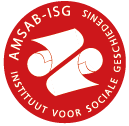 |
 |
 |
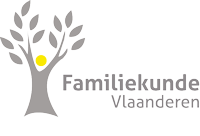 |
 |
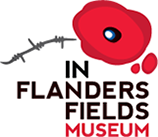 |
 |
 |
 |
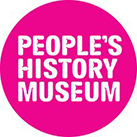 |
 |
 |
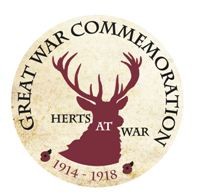 |
 |
 |
 |
Bronnen
Het bronnenapparaat is bedoeld voor iedereen die op zoek is naar informatie over de Belgische vluchtelingen die in de Eerste Wereldoorlog in Engeland terecht kwamen. Het is een 'work in progress': de bronnen worden regelmatig aangevuld met nieuwe vondsten.
Raadpleeg hier het bronnenapparaat in pdf-vorm. De Engelse versie vind je hier
